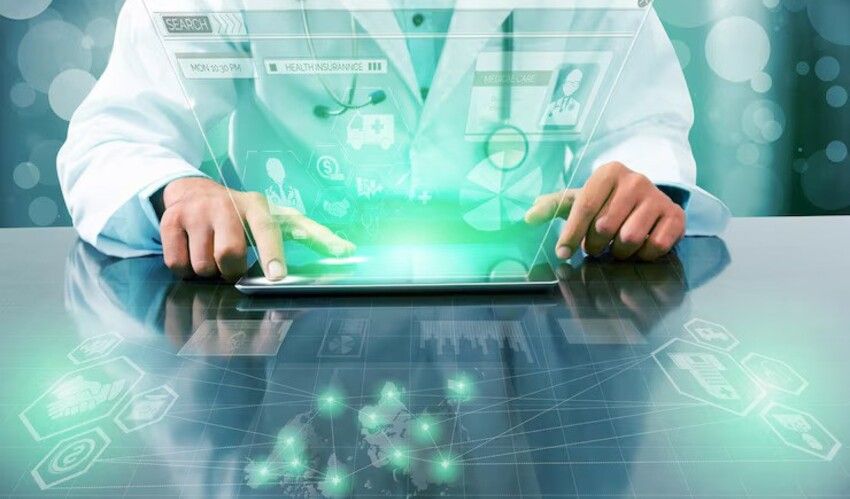EHR platforms entail the important infrastructure, network, software, and hardware needed to support the exchange and management of patient health information. Digitizing patient data and organizing workflows enable healthcare companies to access the entire patient information immediately. This leads to more precise diagnoses, enhanced treatment outcomes, coordinated care delivery, and improved patient safety. In this article, we will shed light on how EHR trends will revolutionize the healthcare industry.
Introduction
It would not be wrong to say that the advancement in technology is enabling the healthcare industry to evolve at an unprecedented pace. Keeping this scenario under consideration, we are presenting to you some EHR trends that are expected to transform the healthcare industry.
Enhanced Cybersecurity That Leads To Safeguarding Patient Data
The EHR platforms have become increasingly interconnected. The significance of robust cybersecurity measures cannot be exaggerated. The future of EHR platforms should prioritize data security to protect confidential data from cyber threats.
EHR companies are heavily investing in security measures, authentication protocols, and encryption measures to safeguard patient information from breaches and unauthorized access. In addition, stringent adherence to regulatory standards, like the Health Insurance Portability and Accountability Act (HIPAA), is important to maintain data integrity and patient privacy.
It Is Integrated With Mobiles Allows Healthcare Mobility
Mobile integration is another emerging trend that is expected to shape the future of EHR platforms. The widespread utilization of tablets and smartphones enables healthcare companies to embrace mobile apps as an extension of their EHR mechanisms. Mobile EHR platforms permit healthcare experts to view patient data safely and upgrade records immediately. This allows flawless communication with colleagues.
In addition, mobile integration allows point-of-care documentation, decreasing administrative burdens and enhancing the efficiency and accuracy of data entry. It also manages telehealth services. This allows virtual consultations and remote patient monitoring. The flawless integration of mobile technology with EHR platforms can revolutionize healthcare delivery. This makes it a convenient and accessible option for both providers and patients.
It Provides chances for Patient Engagement Allowing Active Participation
Patient involvement plays a crucial role in determining the future of EHR platforms. They have patient portals and mobile apps connected to HER systems that permit patients to have the opportunity for simple access to their appointments, lab results, and medical records. Perhaps, they also communicate with doctors, request prescription refills, and attain customized information regarding health education.
The Impact of Machine Learning and Artificial Intelligence on EHR Platforms
Machine learning and artificial intelligence are transforming the healthcare industry. These advanced technologies can change the way EHR systems function. This offers advanced technologies to change the way EHR systems function, offer valuable insights, and enhance clinical decision-making.
Relying on AI algorithms enables HER platforms to analyze huge data amounts to pinpoint patterns, forecast health-related risks, and customize treatment plans. Machine learning algorithms can help healthcare providers in diagnosing diseases, suggesting suitable treatments and even telling clinicians about possible adverse drug interactions. This integration of machine learning and AI within HER platforms holds great promise for enhancing patient care and decreasing medical errors.
It Encourages Interoperability By Breaking Down Data Silos
One of the most important trends in the coming period in EHR is interoperability. In the past few years, healthcare systems sometimes operated in Silos. This makes it complex to share patient data across various companies and providers. Nevertheless, interoperability aims to fill the gap by allowing flawless communication and data exchange between different EHR systems.
Interoperable EHR platforms permit healthcare companies to view in-depth patient records immediately, regardless of healthcare setting and provider. This highlights the significance of EHR for therapists. This guarantees a holistic view of the patient’s medical history. It also leads to more precise diagnosis, enhanced care coordination, and enhanced patient outcomes.
Conclusion
Cybersecurity, mobile integration, patient engagement, machine learning, artificial intelligence, and interoperability are emerging trends forming the evolution of EHR platforms in the coming time period. By following these trends, healthcare companies can improve care coordination, enhance clinical decision-making, allow patients to actively participate in their healthcare, and guarantee the security and privacy of patient data.
Frequently Asked Questions (FAQs)
What is meant by an EHR system?
EHR platforms entail the important infrastructure, network, software, and hardware needed to support the exchange and management of patient health information. Digitizing patient data and organizing workflows enable healthcare companies to access the entire patient information immediately.
What is the most famous trend that is expected to transform the healthcare industry landscape?
The EHR platforms have become increasingly interconnected. The significance of robust cybersecurity measures cannot be exaggerated. The future of EHR platforms should prioritize data security to protect confidential data from cyber threats.
EHR companies are heavily investing in security measures, authentication protocols, and encryption measures to safeguard patient information from breaches and unauthorized access. In addition, stringent adherence to regulatory standards, like the Health Insurance Portability and Accountability Act (HIPAA), is important to maintain data integrity and patient privacy.

